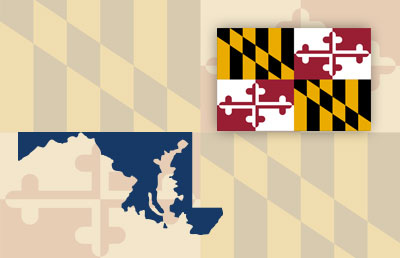Maryland Aligns Terms with Federal Definitions and Clarifies MLO Requirements

Effective as of July 31, 2017, Maryland amended provisions to align state mortgage industry terminology with federal terminology and clarified provisions impacting mortgage lender originators (MLOs). The following topics were clarified by the amendments: continued education, duty of care, application, exemptions and advertising.
As may be evident, the objective of the legislation was to simplify compliance. Accordingly, both “average prime offer rate” and “higher-priced mortgage loan” were defined in accordance with their definitions within CFR 12 §1026. Since these terms’ definitions are now imbedded within the federal regulation they are subject to change in accordance with any changes made to CFR 12 §1026.
As for the provisions amending MLO requirements to promote clarity, the most notable changes are listed below.
-
- Continued Education (CE): Previously, due to gaps in the definitions, non-related topics may have satisfied the CE requirements. However, as of the amendments, in order to satisfy requirements, state/federal law and regulations must be related to mortgage lending, origination and standards.
- Duty of Care: Previously, a form prescribed by the Commissioner was the only satisfactory document that could be presented to meet net tangible benefits requirements. Post-amendments, this standard has been relaxed to include “a form that is substantially similar to the form prescribed.”
- Applications: Completed applications which have the attendant required fees posted will now have to be approved or denied within 60 days upon receipt. Denials will require that an itemization of steps needed to remedy any incompletions be provided to the applicant.
- Exemptions: Several exemptions from the amendments were introduced which impact compliance and relax the standards. The two main exemptions impact solicitation in conjunction with location requirements and originating under an expired license. The amendments proscribe any attempts to take any applications outside of the licensee’s location; however, a licensee may take a loan application if the application came to him/her without any efforts on his or her part (i.e. soliciting outside of his or her licensed jurisdiction). The licensee may also originate a loan if the application was received before the deadline of his/her license renewal.
- Advertising: The most notable amendment introduced impacts social media advertising. Should an MLO advertise on social media usual pertinent information such as employer and NMLSR number does not need to be disclosed in each advertisement provided that it is prominently disclosed on the home page, within the same platform as the advertisements, of the individual.

Comments are closed.